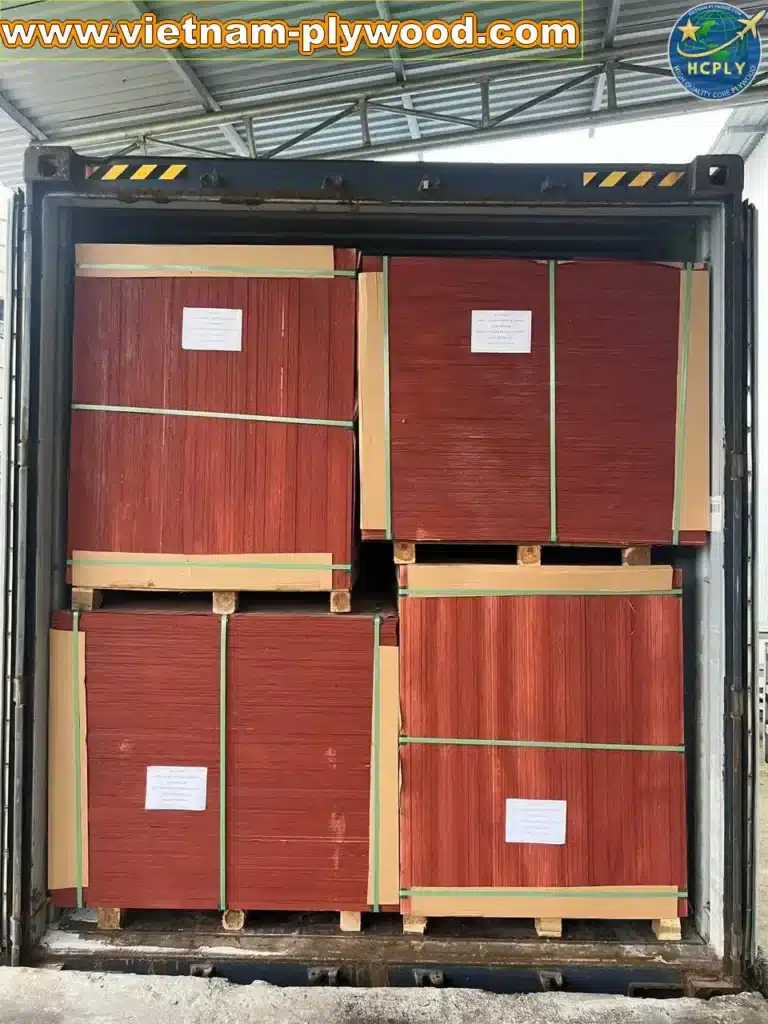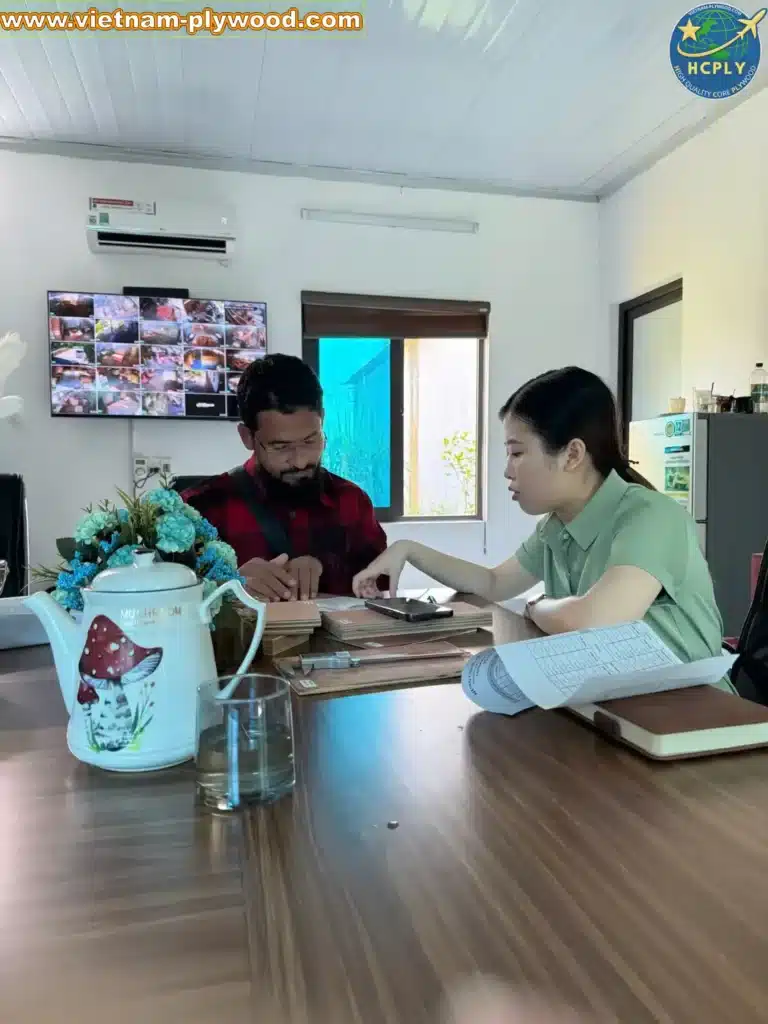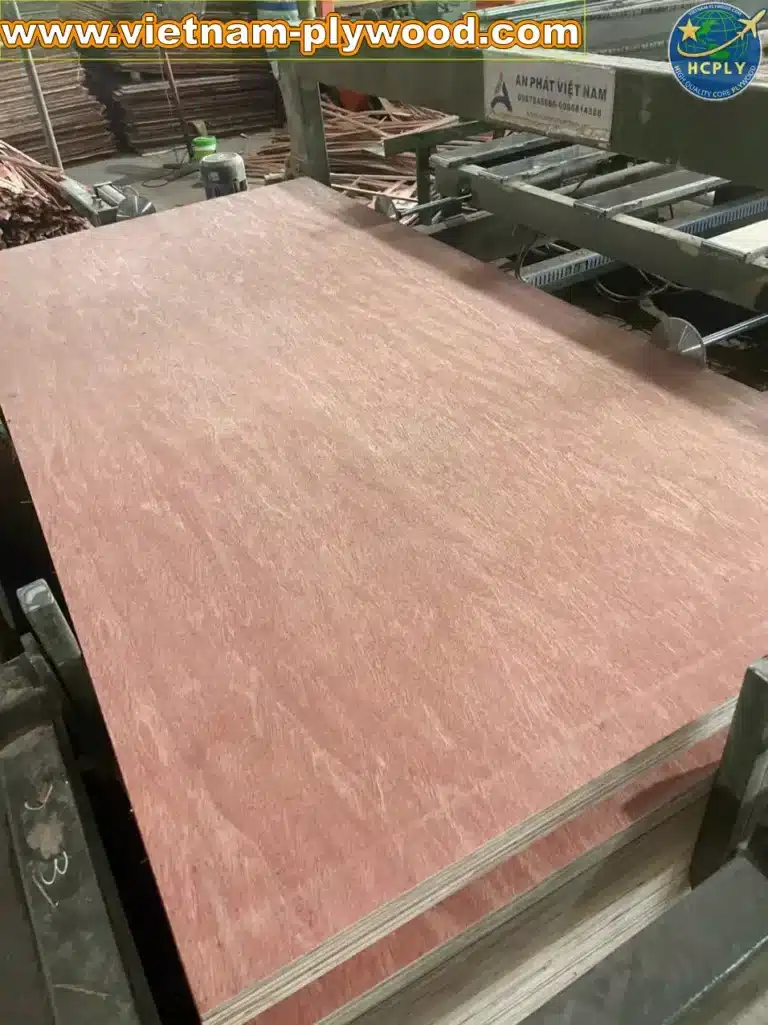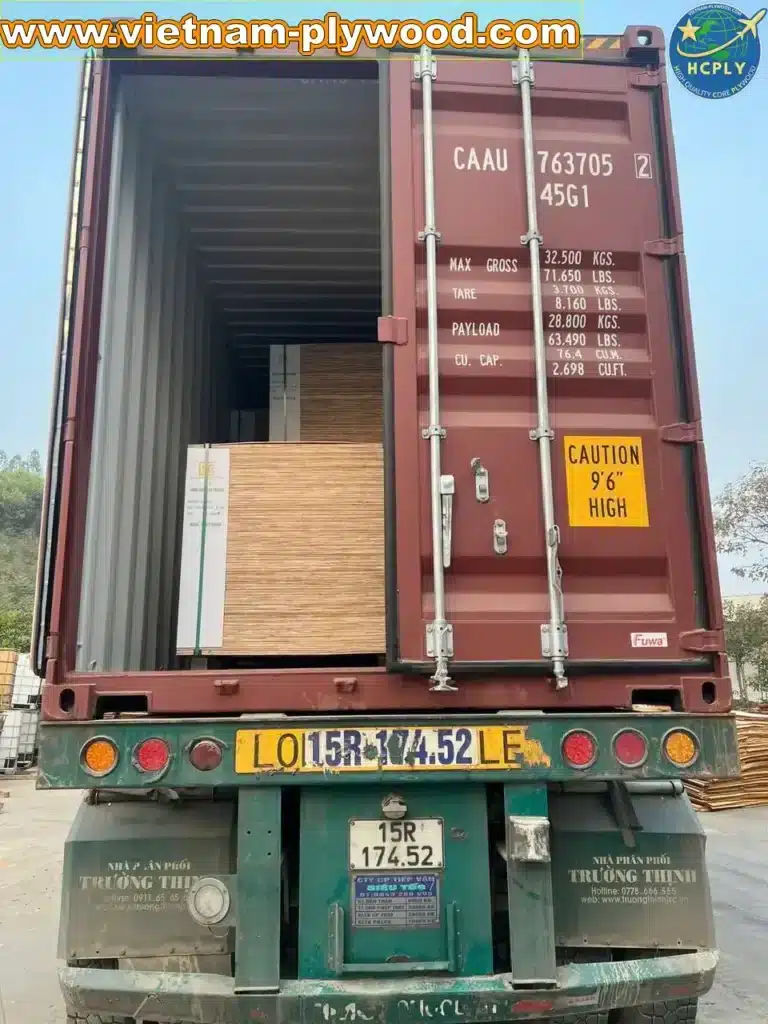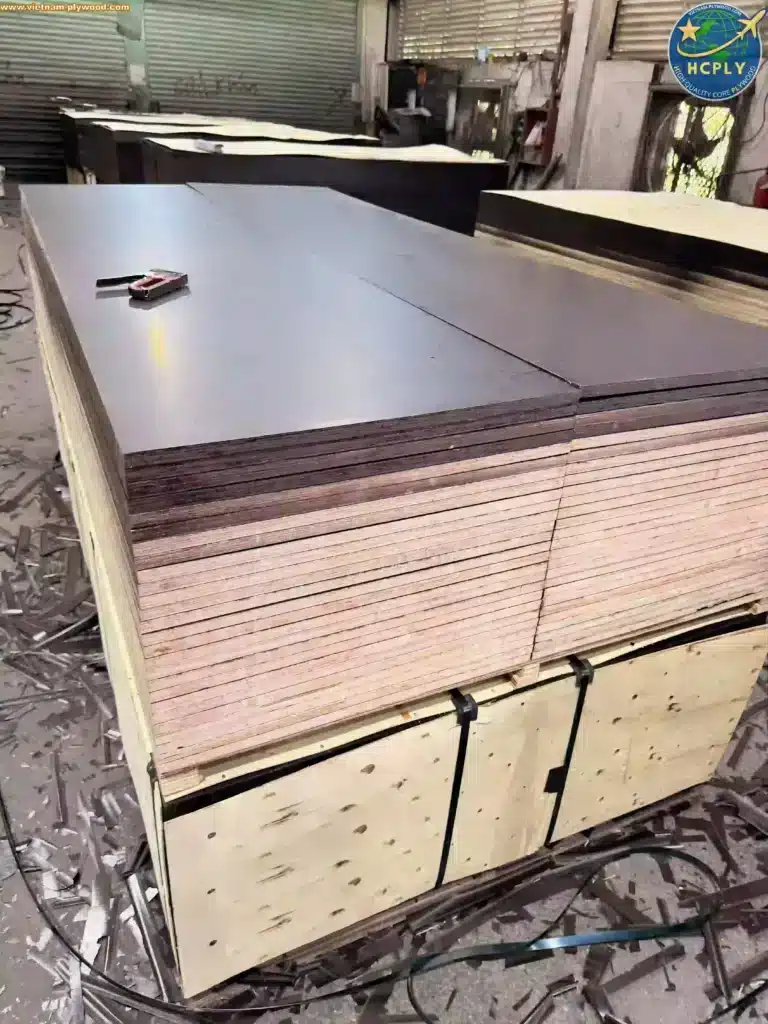Vietnam Packing Plywood Prices – Export Grade vs Local Grade
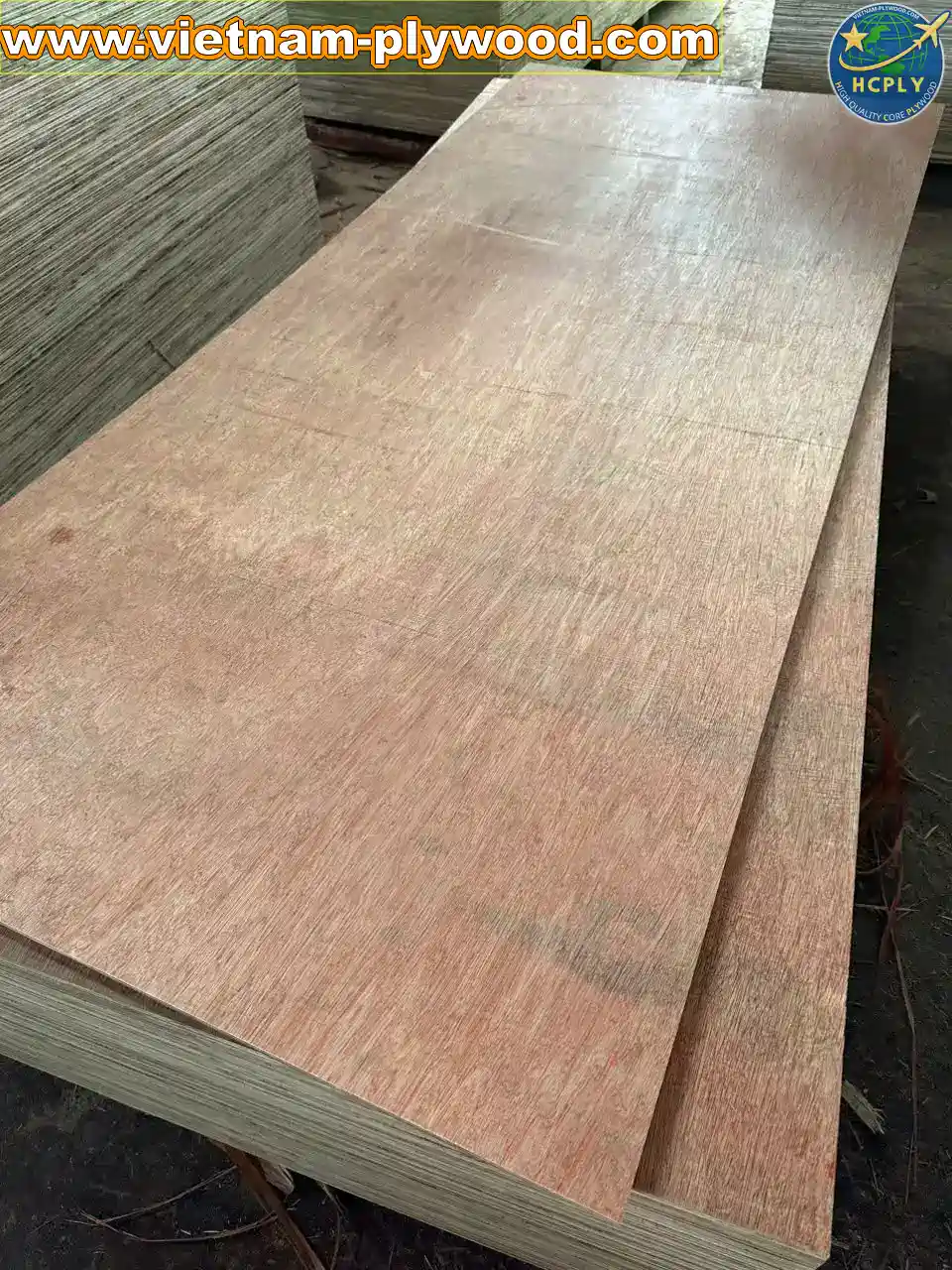
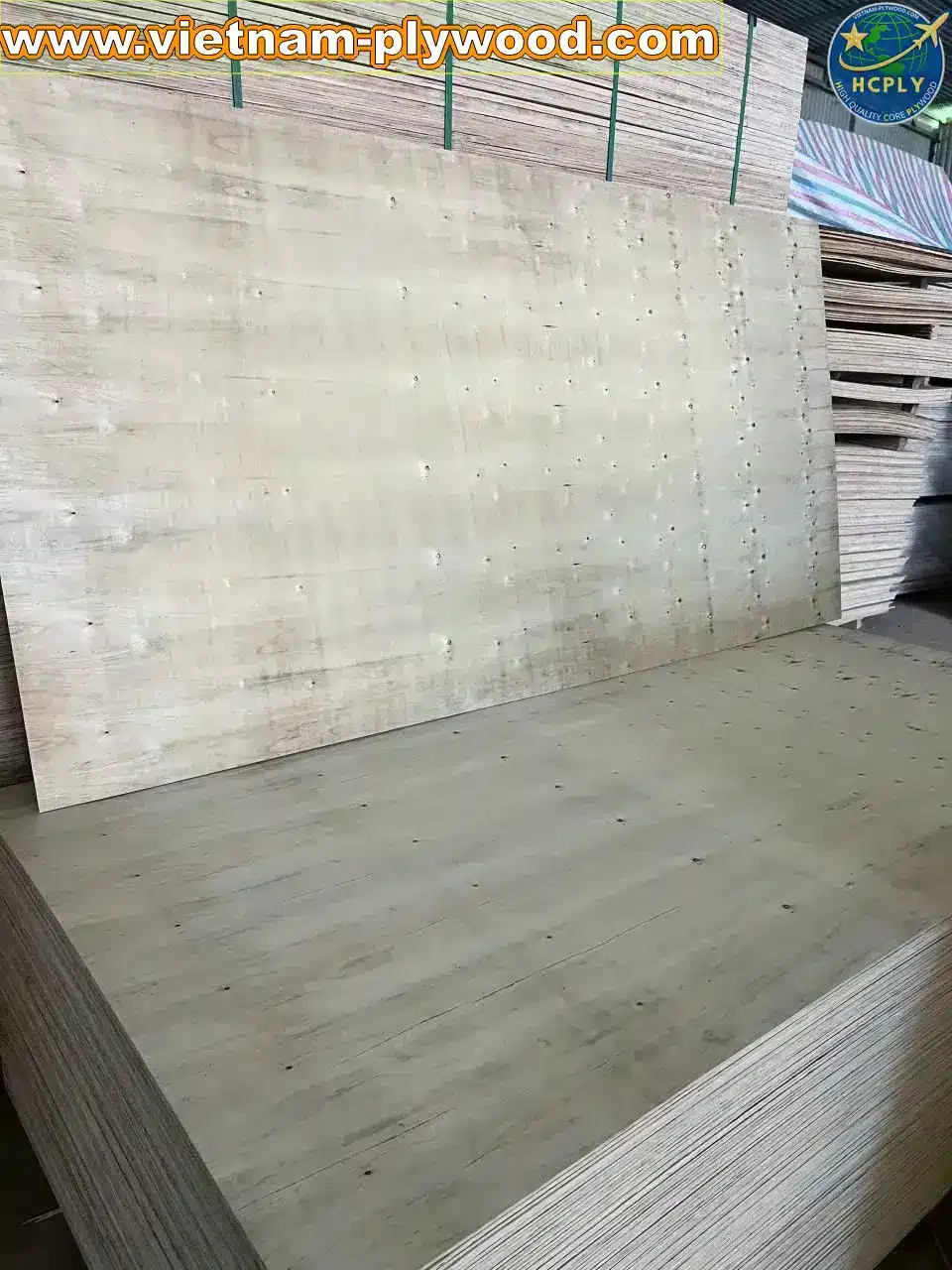
🏆 1 – Hi, Lucy from HCPLY Here!
Hello friends, Lucy here again! One of the most frequent questions I get from buyers is: “Why is export grade packing plywood more expensive than local grade?”
Today, I’ll break it down for you with real market prices, cost factors, and buyer tips so you can make the best decision for your shipments.
Understanding Vietnam packing plywood prices is crucial for making informed purchasing decisions, especially when comparing export grade and local grade options.
🎯 2 – What is Export Grade Packing Plywood?
Export grade packing plywood is manufactured to meet international shipping and durability standards, ensuring that your goods stay protected during long-distance transport.
- FOB Vietnam Price Range: $200 – $280 per CBM (~$5.80 – $8.50 per sheet for 8–18mm)
- Core Material: Eucalyptus or mixed tropical hardwoods with minimal gaps
- Glue Options: WBP or MR glue, chosen based on the destination’s climate
- Surface & Tolerance: Smooth sanded finish, consistent thickness, and low moisture content
- Certifications Available: CARB P2, FSC on request
- Main Markets: India, Middle East, Europe, Africa
Export grade is designed to withstand high humidity, rough handling, and extended storage, making it ideal for sea freight.
💎 3 – What is Local Grade Packing Plywood?
Local grade is tailored for short-term packaging or domestic transport, where cost savings take priority over durability.
- Domestic Price Range: $110 – $160 per CBM (~$3.20 – $4.80 per sheet)
- Core Material: Mixed wood species, often with occasional overlaps or core gaps
- Glue Type: Basic urea-formaldehyde (UF) glue for low moisture resistance
- Surface & Tolerance: Rougher finish, possible thickness variation of ±1mm
- Main Markets: Vietnam, Laos, Cambodia, short-haul exports in Southeast Asia
Local grade is a budget-friendly choice for light-duty packaging where exposure to moisture or long transit times is minimal.
📦 4 – Key Price Drivers
When considering Vietnam packing plywood prices, it’s important to factor in the quality differences between export and local grades.
- Material Selection – Denser, high-quality hardwood cores raise material cost.
- Glue Type – WBP or phenolic glue costs more but prevents delamination in wet conditions.
- Processing & Finishing – Sanding, edge trimming, and tight QC checks add to labor and production costs.
- Moisture Control – Kiln drying and moisture calibration are more rigorous for export-grade panels.
🛠 5 – Which Should You Choose?
- Export Grade: Best for overseas shipping, monsoon season, or goods that will be stored for long periods.
- Local Grade: Ideal for cost-sensitive projects, domestic distribution, or short-haul trucking.
Tip: Some buyers mix export and local grade in the same container – using export grade for critical loads and local grade for lighter goods.
🔍 6 – Real Buyer Case Study
One of our long-time Indian partners used to ship electronics in local grade packing plywood.
After several rainy-season shipments arrived with water damage, they switched to export grade.
While the cost per sheet increased by ~$2.10, returns dropped to zero, saving them more in the long run.
📌 7 – FAQ
Many buyers often inquire about Vietnam packing plywood prices, especially in relation to the export grade.
Q1: Can I mix export and local grade in one container?
Yes – HCPLY offers mixed loading to maximize your cost efficiency.
Q2: Does export grade always require WBP glue?
Not necessarily. For dry climates, MR glue can reduce cost without affecting performance.
Q3: Is local grade acceptable for international shipping?
Only for short transit times and in mild weather conditions.
🌏 8 – Export vs Local Market Trends
- Export Grade: Increasing demand from Africa, South America, and the Middle East for durable crates.
- Local Grade: Continues to dominate domestic markets and short-distance exports in Southeast Asia.
🚀 9 – Final Thoughts & Call to Action
If your goods face long transit times, container humidity, or rough handling, export grade packing plywood is a wise investment.
If cost is your top priority and conditions are controlled, local grade may be sufficient.
To maximize value, understanding Vietnam packing plywood prices is essential for both local and export grade choices.
📞 Contact HCPLY for the latest Vietnam packing plywood prices:
WhatsApp +84-975807426 | Email [email protected]
Buyers should always consider Vietnam packing plywood prices in their overall budget to avoid overspending.
Recent trends indicate fluctuations in Vietnam packing plywood prices due to market demand and supply chain issues.
Investing wisely requires understanding Vietnam packing plywood prices, especially for critical shipping needs.
For the most accurate information, regularly check Vietnam packing plywood prices as they fluctuate frequently.
Make sure to compare Vietnam packing plywood prices across different suppliers for the best deals.
Understanding the nuances in Vietnam packing plywood prices can lead to better purchasing decisions.
It’s vital to stay informed about Vietnam packing plywood prices, especially if you’re involved in shipping logistics.
Industry experts often analyze Vietnam packing plywood prices to assist businesses in budgeting effectively.
As markets evolve, so do Vietnam packing plywood prices, necessitating regular updates from manufacturers.
Buyers must consider seasonal impacts on Vietnam packing plywood prices to optimize their purchasing strategies.
Reviewing historical trends can provide insights into future Vietnam packing plywood prices.
Ultimately, staying updated on Vietnam packing plywood prices will help businesses remain competitive.
Lastly, understanding Vietnam packing plywood prices is crucial for maintaining profitability in exports.
For accurate projections, businesses should analyze patterns in Vietnam packing plywood prices over time.

